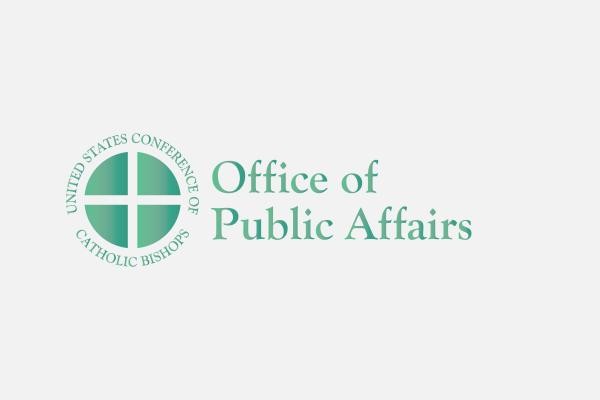Rabbis, Bishops Give Reflections on Pilgrimage to Israel and Rome
WASHINGTON -- Jewish rabbis and Catholic bishops who participated in a 12-day interfaith journey to Israel and Rome have issued a statement entitled "Reflections on an Interfaith Pilgrimage." They described the trip as a "remarkable journey of dialogue and understanding.
WASHINGTON -- Jewish rabbis and Catholic bishops who participated in a 12-day interfaith journey to Israel and Rome have issued a statement entitled "Reflections on an Interfaith Pilgrimage." They described the trip as a "remarkable journey of dialogue and understanding."
The joint statement was released by Rabbi Joel H. Zaiman, Chairman of the Committee on Interreligious Affairs of the Jewish Council for Public Affairs, and Cardinal William H. Keeler of Baltimore, Episcopal Moderator for Catholic-Jewish Relations, Bishops' Secretariat for Ecumenical and Interreligious Affairs. This is the text of the statement:
Reflections on an Interfaith PilgrimageFrom March 8 to 19, 1998, our group of American Rabbis and Roman Catholic Bishops traveled together on what was for all of us a remarkable journey of dialogue and understanding. Planned together from the outset by ProjectInterchange of the American Jewish Committee and the Catholic Near EastWelfare Association, the journey was sponsored by the Jewish Council for Public Affairs and the Bishops' Committee for Ecumenical and Interreligious Affairs of the National Conference of Catholic Bishops.
Indeed, the planning itself involved our representatives in a series of dialogues regarding the significance for each other of the holy sites wewould visit and the local leaders we would meet. The goal was to experience Israel and Rome through each others' eyes as well as our own.We wanted to appreciate the values, views and perspectives that the other brings to the Land both traditions call holy and to Rome, which has the most ancient Jewish community in Europe, predating Christianity,and the Holy See of the Catholic Church.
It was, the participants enthusiastically agree, a journey of faith thatmore than fulfilled these expectations. It was, first and foremost, a prayerful trip. We visited the central sites of Jesus' life, and sites sacred to Jewish tradition, welcoming the Sabbath together at the Western Wall. One stop, at the ancient Synagogue in Capernaum, where Jesus preached, saw perhaps for the first time in two millennia the successors of the apostles and the heirs of the Talmudic masters, clustered, not in disputation, but in mutual enlightenment.
There were many such moments and many moments of testing as well with Israelis and Palestinians, both officially and in local communities. Wewere struck with the yearning for peace among all whom we met. We wereimpressed as well with the complexity of the issues and the paradoxicalsimplicity of what is required--peace, and the trust between peoples that makes peace possible. It was encouraging to note that as the trustwithin our group was built up through common experiences and open sharing of feeling and attitudes, it became as likely for the rabbis in our group to raise with Israeli officials issues of concern to Christians as it was for our bishops, and vice-versa.
An important test awaited us in Rome as well. On the day we arrived theHoly See issued its statement on the Holocaust. Our group shared with intensity and honesty our individual reactions among ourselves and with Cardinal Cassidy of the Pontifical Commission for Religious Relations with the Jews. Beyond the reactions of the moment, we see in the statement a mandate for further joint historical and theological studies, and an impetus for continuing and expanding our respective religious educational programs about the Holocaust and about each other throughout the United States.
One unusual feature of the journey was that bishops were paired with rabbis from the same cities ranging from California to Massachusetts, and from Detroit to Baltimore. So, energized by this journey together, we are well-placed to continue our dialogue not only on the national level but in our local communities as well.
William Cardinal Keeler
Archbishop of Baltimore
Episcopal Moderator for
Catholic-Jewish Relations,
National Conference of Catholic Bishops
Rabbi Joel Zaiman
Chizuk Amuno Congregation, Baltimore
Chair, Committee for Interreligious
Relations, Jewish Council for Public Affairs
Participants in the interfaith journey included Bishop Stephen Blaire, Auxiliary Bishop of Los Angeles, Bishop John P. Boles, Auxiliary Bishop of Boston, Dr. Eugene J. Fisher, Executive Secretary, Secretariat for Ecumenical and Interreligious Affairs, National Conference ofCatholic Bishops, Rabbi Allen Isaac Freehling, University Synagogue, LosAngeles, Cardinal William H. Keeler, Bishop Basil H. Losten of the Ukrainian Catholic Diocese of Stamford, CT, Msgr. Denis J. Madden, Associate Secretary General, Catholic Near East Welfare Association, Rabbi Michael Menitoff, Congregation Mishkan Tefila, Chestnut Hill, MA, Bishop John J. Nevins of Venice, Florida, Bishop John C. Nienstedt, Auxiliary Bishop of Detroit, Dr. Lawrence Rubin, Executive Vice Chairman, Jewish Council for Public Affairs, Rabbi A. James Rudin, National Interreligious Affairs Director, American Jewish Committee, Rabbi Dannel I. Schwartz, Temple Shir Shalom, West Bloomfield, MI, Msgr.Robert L. Stern, Secretary General, Catholic Near East Welfare Association, Rabbi Mordecai Waxman, Temple Israel, Great Neck, NY, RabbiMark L. Winer, President, National Council of Synagogues, and Rabbi Joel H. Zaiman, Chair, JCPA Committee on Interreligious Affairs.

